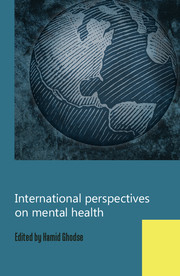Book contents
- Frontmatter
- Contents
- List of contributors
- Preface
- Africa
- Asia
- Afghanistan
- Armenia
- Azerbaijan
- Bahrain
- Bangladesh
- Brunei Darussalam
- Cambodia
- Hong Kong
- India
- Iran
- Iraq
- Israel
- Japan
- Jordan
- Kuwait
- Laos
- Lebanon
- Malaysia
- Mongolia
- Nepal
- Sultanate of Oman
- Pakistan
- The Philippines
- Qatar
- Singapore
- South Korea
- Sri Lanka
- Syrian Arab Republic
- Tajikistan
- Thailand
- Timor-Leste
- Turkey
- United Arab Emirates
- Yemen
- Australasia
- Europe
- North America
- South America
- Index
Iraq
from Asia
Published online by Cambridge University Press: 02 January 2018
- Frontmatter
- Contents
- List of contributors
- Preface
- Africa
- Asia
- Afghanistan
- Armenia
- Azerbaijan
- Bahrain
- Bangladesh
- Brunei Darussalam
- Cambodia
- Hong Kong
- India
- Iran
- Iraq
- Israel
- Japan
- Jordan
- Kuwait
- Laos
- Lebanon
- Malaysia
- Mongolia
- Nepal
- Sultanate of Oman
- Pakistan
- The Philippines
- Qatar
- Singapore
- South Korea
- Sri Lanka
- Syrian Arab Republic
- Tajikistan
- Thailand
- Timor-Leste
- Turkey
- United Arab Emirates
- Yemen
- Australasia
- Europe
- North America
- South America
- Index
Summary
Iraq is known to be the cradle of civilisation – a country with a rich history. Present-day Iraq occupies the greater part of the ancient land of Mesopotamia, the plain between the Euphrates and Tigris rivers. Some of the world's greatest ancient civilisations arose in this area, and Iraq possesses a huge number of historical monuments and archaeological sites.
Modern Iraq has a geographical area of just under 440 000 km2 and a population of just over 27 million. The main languages spoken in the country are Arabic, Kurdish and Turkman. The two main religions are Islam and Christianity. The country is in the lower middle-income group (according to World Bank criteria).
The proportion of the population under the age of 15 years is 41% and the proportion of those over 60 years is 5%. Life expectancy at birth is 59.1 years for males and 63.1 years for females. Healthy life expectancy at birth is 49 years for males and 52 years for females. The literacy rate for men is 54.9% and for women is 23.3%.
The healthcare system in Iraq is centralised and provided free of charge at the point of delivery. The Minister of Health is supported by three deputies and a number of directors and advisors, each having responsibility for a directorate. There is a plan for the new Iraq to look at devolution, with the governorates having some form of independence, as well as looking at private–public partnerships. Social services are provided by the Ministry of Labour and Social Affairs, and there is a close working relationship between the two ministries to provide social care alongside healthcare.
History of mental health services
Pioneers like Al-Razi (865–925) and Ibn-Sina (Avicenna, 980–1037) established the first mental hospitals and applied humane treatments. Indeed, the first mental hospital in the world was built in Baghdad in 705. The region then entered the dark ages and it was not until the middle of the 20th century that modern psychiatric services appeared in Iraq. In the early 1950s, Dr Jack Aboud and Dr Ali Kamal led in establishing Al- Rashid and Al-Rashad mental hospitals (the former was later replaced by Ibn Rushid State Hospital).
- Type
- Chapter
- Information
- International Perspectives on Mental Health , pp. 111 - 116Publisher: Royal College of PsychiatristsPrint publication year: 2011



